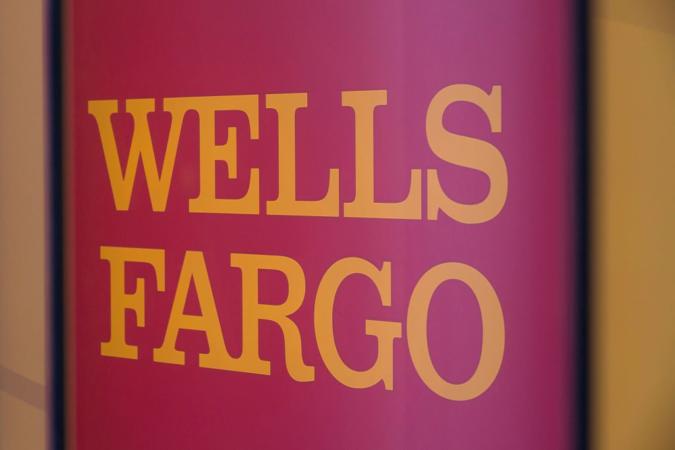Michelle Y. Lee has remained faithful to Wells Fargo for 39 years, and now even holds the title of executive vice president of regional banking.
Lee oversees over 4,000 branches with more than 42,500 employees across 36 states and the District of Columbia. Prior to these responsibilities, Lee worked her way toward the top of the corporate ladder as a teller.
While stepping into her entry-level position, Lee found her footing and knew she wanted to advance her career with the bank giant. At this time, Lee only saw those who looked like her in positions as branch managers. Therefore, she aimed to become one, too.
“After a couple of years, I decided to pursue a career in banking. I didn’t know what I wanted to be. At the time, the only person I saw that looked like me was a couple who were branch managers. So, that’s where I saw the possibility for me because that’s where I saw people who looked like me. And that’s what I set out to do to become, a branch manager,” Lee told AfroTech.
She Wanted To Shatter The Glass Ceiling
Although this is a beautiful example of the power of representation, Lee notes in the same breath, that she recognized there appeared to be a glass ceiling for higher-level positions within the company.
“Well, I’m saying it a little tongue in cheek, because what I would say is I didn’t see representation above a branch manager role. So that was the limit that I placed on myself initially because where I saw representation, that’s what felt possible. But when I looked at roles above that, there weren’t people who looked like me. So, I never imagined myself in those roles. I wasn’t striving for that. That’s why representation matters. And that’s why it matters at all levels from the entry-level positions to the most senior levels in companies because that often is what shows people what’s possible when they can see it and they’re not just having to imagine it,” Lee told AfroTech.
A Training Program Catalyzed Her Leadership Role In Banking
Lee would soon become an example for others to look up to as a reminder that anything is possible. Eager to learn the ropes of the company, Lee found a mentor in a woman working in the back areas of the bank who helped with problem-solving and troubleshooting for customers. Her mentorship became a stepping stone for Lee’s involvement in the company as she became more dependable to other employees. Yet, what truly solidified Lee’s career in banking, was a management training program that accepted only two internal candidates. After 18 months, Lee was then promoted to branch manager, which propelled her into leadership. Then, Lee received several other promotions including market manager and regional manager.
It should come as no surprise, Lee has witnessed the company change before her eyes. The company merged nine times and acquired a new name several times during Lee’s tenure. Being a part of the company’s evolution, Lee states she has leaned further into the power of her voice and stayed true to her core. And this was a reality she did not have when she entered the corporate space in 1984. She became even more emboldened following the death of George Floyd in 2020.
Lee On Finding Her Voice
“You learn a lot from different leaders when you work through multiple decades,” Lee said. “I can tell you that what leaders could say and do and get away with in the ’80s wouldn’t fly today. So, to have been a part of the evolution of working for people who I had to tolerate some things for, or at least felt I had to back in the ’80s, and then watching that evolve in the nineties where I feel like I found my voice,” Lee said. “I was growing up as a woman, as an adult. So, maturing myself and also the corporate environment changed where I didn’t feel like I had to assimilate. I could call out things that I might have viewed as disparity or DEI issues. I felt empowered to call that out in the ’90s in a way that I didn’t when I started banking in 1984. I probably feel empowered differently post-2020. The murder of George Floyd was a turning point. And I think we as a people feel empowered differently than maybe we did before that.”
She continued: “I think about the narrative and the eighties, we don’t see color, we don’t see race, we don’t talk about that at work… all of a sudden the word diversity enters the workplace in the’90s. We shifted from I don’t see color to, I want you to see my color. I want to be seen, I don’t want to blend in, I don’t want to assimilate. I don’t want to have to leave Michelle Lee, who grew up in Newark, New Jersey, at home and bring this other version of myself to work because the value that I bring is in my difference, it is in the difference of my background and my ethnicity and my race and where I grew up. And all of that is what makes me who I am and what makes me my best self when I can be her and not when I have to be some corporate version of what’s acceptable.”
Progression Within The Industry
Now, as a seasoned professional, Lee continues to wear her hat as an executive, and other colleagues are now inspired by her presence as it reminds them their dreams are possible, too.
Lee hopes as the next generation prepares to enter the workforce, there will be a bridge to connect existing differences for continued progress within the industry.


